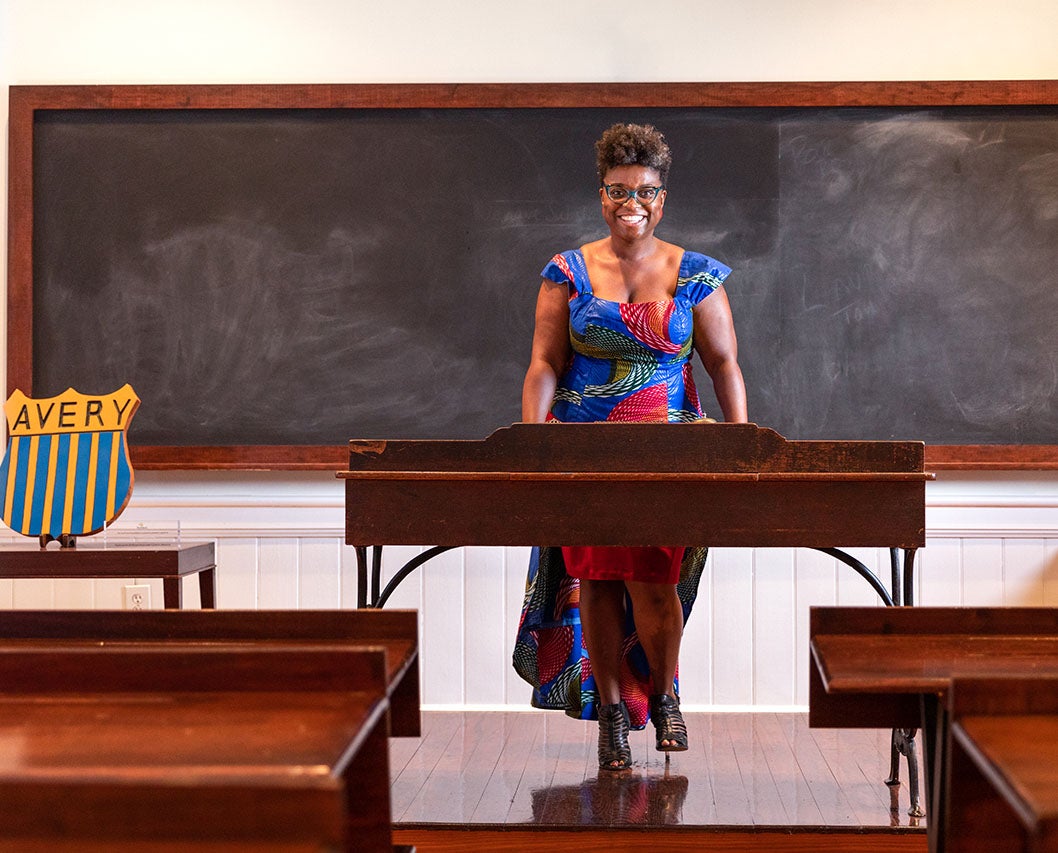Tamara T. Butler’s ties to the Avery Research Center for African American History and Culture run deep.
It started when, in eighth grade, she and a classmate took the top spot in the 100 Black Men of Charleston history competition, and, in recognition of their achievement, the Avery Research Center presented them with two books — They Came Before Columbus: The African Presence in Ancient America and Before the Mayflower: A History of Black America. It was a big moment for them, and they went on to represent South Carolina, ultimately winning at the national 100 Black Men of America competition.
Years later, Butler has yet another big moment associated with the Avery: She has assumed the role of executive director of the Avery Research Center for African American History and Culture at the College of Charleston and associate dean of College Libraries.
“We are excited to have such a dynamic leader with Lowcountry roots take the reins of the Avery Research Center,” says Tony Bell, president of the Avery Institute of Afro-American History and Culture.
Butler attended Xavier University of Louisiana, a historically Black university in New Orleans. She had plans to become a pediatrician, but Hurricane Katrina shifted her focus in 2005.
“I returned home and took some classes at the College of Charleston,” says Butler. “As much as I appreciated how the College made space for me, the only place I truly felt welcomed was in Dr. Valerie Frazier’s African American literature class. Dr. Frazier’s class reminded me of Xavier, as it was a space to think critically about Black life
and culture.”
After graduating from Xavier, the first-generation college graduate applied and was accepted to the Ohio State University, where she received her master’s in African American and African studies and her master’s and doctorate in multicultural and equity studies in education.
Upon completion of her studies, Butler became assistant professor with the Department of English and the African American and African Studies Program at Michigan State University. She focused on Black girl literacies and Black women’s connections to land, along with narratives of Black women from the Sea Islands, particularly her hometown community of Johns Island, S.C.
At the Avery, Butler plans to continue her efforts.
“Part of my project looks at collections of everyday Black people who may not have made it into history books,” she explains. “Their collections of photos, church programs, newspapers and knickknacks connect us to some of the most insightful stories. I hope to deepen our understanding of history and culture through their archives and stories.”
At the same time, Butler will focus on the foundation built by her predecessor.
“Dr. Patricia Williams-Lessane left a strong foundation from which to build the future of Avery,” says John White, dean of College Libraries. “Throughout her career, Dr. Butler has exhibited the kind of leadership and vision to continue that work and expand on it. As we have all witnessed these last few months, there is much work to be done to address issues of justice and inclusion. As a public institution, it is vital that the Avery take a leading role in providing a voice and serving as a resource for our communities. I can think of no one better to lead that charge than Dr. Butler.”
Photo by Mike Ledford




